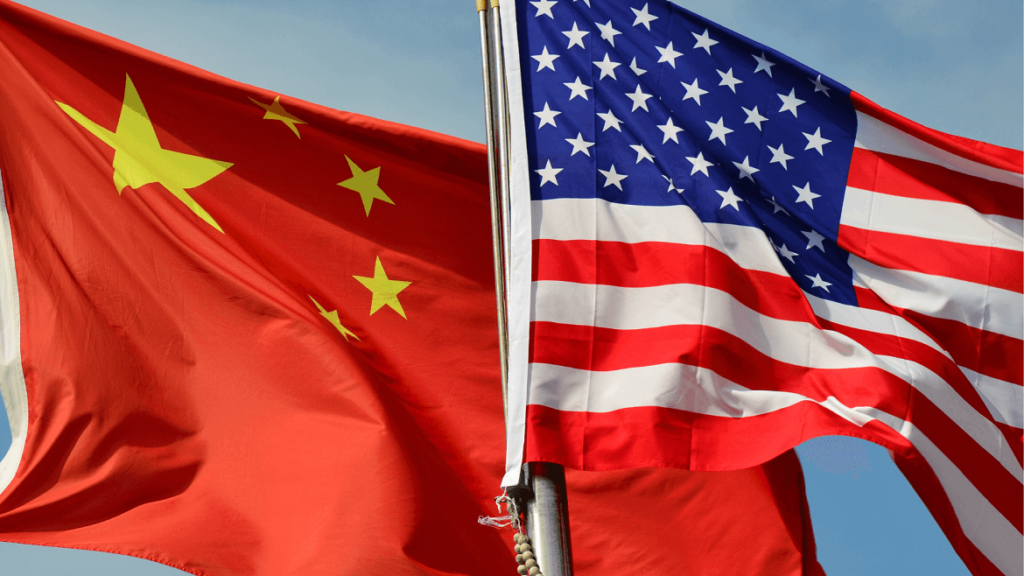By Sunny Lee – Founder and President at CGPS (Center for Global Peace and Security), and Director at IKUPD (Institute for Korea-U.S. Political Development), Washington DC

In the beginning of the new millennium, the world became swirled by a giant turmoil in shock and horror to intimidate international society. One harsh wind came across the 9.11 terror which brought out the severe crisis of the world economy in the end. The other frantic wind blew through China’s uprising syndrome in uncontrolled speed, which would dream of becoming the new superpower by dominating the U.S.
At that moment, history seemed to choose China’s hand up to the sky so that it would be so sure of the prospective future. Through such a dramatic venture over twenty years, the international society has been faced with the U.S.-China power game.
In statistical analysis, China’s potential is enough to prove that its GDP exceeds the U.S. in 2033. Most economists would insist on the diagnosis as it is scientifically verified in China’s wartime speed. China has only concentrated on developing economy since Dèng Xiǎopíng took an opening market policy with economic reform in late 1970s.
As the remarkable result, China’s GDP was only 191 billion in 1980, but 1.34 trillion in 2000, 6.09 trillion in 2010, and amazingly picked up to 14.69 trillion in 2020. Xí Jìnpíng proudly announced in the view of such a fast-growing speed that China will finally exceed the U.S. GDP in 2033, presumably 30 trillion as expected the U.S. GDP less than 30 trillion. Perhaps, his ‘Chinese Dream’ might come true unless Covid-19 spreads around the world.
Because of this, the mainstream of the world has come together and converged into two great powers fighting each other, calling it the Economic Cold War for two decades. It would be only a peculiar aspect swirling up the international society that China eagerly focuses on achieving the new superpower position and the U.S. continually prevents its challenge with containment strategy. The top priority of the U.S. foreign policy has been accumulated on how to defeat China’s propelling challenge.
Then who will be winning the power game? The world gets so perplexed by encountering such an unpleasant environment, where it is reconstructed as the struggling place to take over hegemony between the U.S. and China. China keeps a strong confidence to win the power game because economy is the top priority to define national competitiveness beyond military power. However, China’s dream breaks down so fast that its economic bubbles become pinched to explode.
There are critical obstacles that China is incapable of becoming a superpower. Moreover, since Covid-19 broke out in 2020 as the worldwide syndrome, China’s economy is not much prospective to recover compared to other major countries.
First, China sticks to a communist government system to control the economy as well as restrict the industrial environment. After Xi Jinping reinforced his power with communist dictatorship, China’s national development has stalled. Many of Western companies and investment groups are leaving China because of too tight rules and interfering policies related to business.
Second, after Covid-19, its bubble economy is breaking down and stops economic growth. Especially, the younger generation’s unemployment rate is over 20% and the major housing market is going bankrupt, as the bubble burst is imminent. China is the top country in the international society that Covid-19 impacts on damaging national economic systems.
Third, China failed to ‘One Belt, One Road’ project as it focuses on an imperialistic expansion based on its own national interests. It started in 2014 after Xi Jinping took power in 2012, which is planned up to 2049 for 35 years. But its failure within ten years mitigates China’s national power and Xi Jinping will finally lose its dictatorship.
Fourth, China doesn’t follow up international norms and standards against human rights. As well, it has been clamping down on minority people who fight for independence, threatening Taiwan to take over, and furthermore, causing territorial disputes with surrounding countries.
Unfortunately, the U.S. also encounters countless economic struggles as predicting national default phenomenon. Since the 9/11 terror, the U.S. went through a serious economic recession for 10 years after the housing market broke down by pinching overwhelming bubbles. The U.S. national competitiveness withered in a serious decline and gigantic amounts of national debt made itself G2 offer to China while discarding the superpower position by itself.
Similar symptoms are coming up after Covid-19 that the housing market is flying too high as predicting bubble breakage sooner or later. It will go through the U.S. domestic economy as an incorrigible disaster and finally ends up national default. In other ways, the U.S. wastes the budget to control China by calling it the trade war and spends to support the Ukraine War by increasing national debt.
Both China as well as the U.S. would be submerged in such serious dilemmas since Covid-19 broke out which smashed out all the positive predictions and prominent prospects in the global economy. However, China’s condition is exposed as the worst case, especially compared to the U.S. If China fails to economy, it might destroy national system by dividing it into lots of parts so that most of minority people will recover their territorial independence: for instance, Tibet, Xīnjiāng Wéiwú’ěr, Inner Mongolia, and Manchuria. China’s two-thirds of the territory is composed of minority people.
Nevertheless, the international society is not really in favor of the power structure between the U.S. and China. China is always eager to expand its national power with imperialistic strategy to dominate the world. The U.S. also consumes national energy with a lockdown policy toward China. It is an exhausting strategy against international peace and prosperity.
The U.S. pushes neighboring countries to join the confrontation strategy with China. And most countries are unwilling to follow up such a dogmatic policy of the U.S. as falling into a dungeon standing for the new Cold War. In addition, China’s selfish development for ‘One Belt, One Road’ policy faces gigantic struggles by involved countries in the pike of rampage that China has dilapidated them in the name of development.
Therefore, the U.S. and China should recognize how worldwide disasters like Covid-19 impact on global peace and prosperity and cost such a huge scale of sacrifice. China should stop its ambition to become the superpower which will never come true. As well, the U.S. must strive to find out a cooperative strategy with China.
The international society is not much interested in the winner during the U.S. and China’s power game and doesn’t want to sacrifice national interests to follow up one line between them. No countries in the world agree with the omnipotent superpower and the definitive dominance by a certain country. If any country has a strong economic and military power, it should lead the international society for peace, security, and prosperity. That’s the best way to reinforce its national competitiveness that all other countries admire and respect.
If China doesn’t stop its imperialistic expansion by exploiting other countries based on economic interests, its collapse will be fastened. China should remember the similar case that Japan used to sit on the second position in the world economy right after the U.S. But its bubbles exploded, and Japan’s economy stagnated for a long time. It finally became one of the troubled, isolated countries after releasing Fukushima nuclear wastewater.
As such, if the U.S. keeps on dragging other countries to control China’s expansion, it will finally face countless national dilemmas that no other country will take a side of the U.S. At that moment, the U.S. leadership in the international society might be obviously declined and its national trust can fall into reduction in speed.
However, when the U.S. and China willingly give up such a wasteful, ridiculous power game, their national competitiveness will be upgraded and reinforced. It makes them a real winner of the power game. And the international society will happily watch the live broadcasting scenes that they passionately cooperate with each other toward the same direction for global peace and prosperity.
Sunny Lee – Founder and President at CGPS (Center for Global Peace and Security), and Director at IKUPD (Institute for Korea-U.S. Political Development), Washington DC. Sunny Lee is the author of 115 academic books in politics (original English and in German, French, Russian, Polish, Dutch, Italian, Spanish, and Portuguese). She is a bestseller writer not only in politics but also in literature on Amazon. Her recent book is titled: “The Influence on Humankind’s Peace through Korean Reunification: Creating new paradigm in social science by interdisciplinary research.”
(The opinions expressed in this article are solely those of the author and do not necessarily reflect the views of World Geostrategic Insights).







